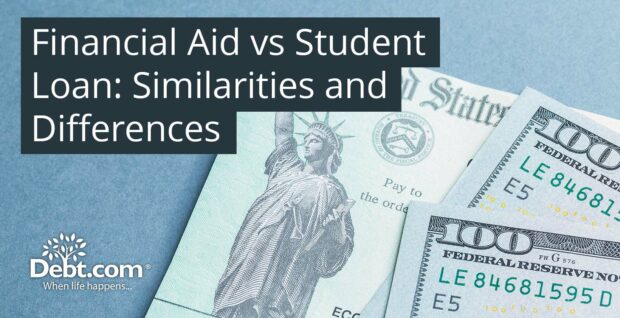
Merit-based financial aid is a financial help granted to students according to their accomplishments and skills rather than their need for money. The “merit aid meaning” pertains to the financial assistance’s capability to honor students’ leadership ability, artistic aptitude, athletic prowess, academic achievement, and other talents. Its main objectives are rewarding and promoting brilliance and drawing top-performing students to educational institutions.
Scholarships, grants, and other financial aid are awarded to students who satisfy certain requirements set forth by the sponsoring school according to their performance. The requirements include extracurricular activities, academic accomplishments, test scores, and personal traits. The assistance comes from several sources, such as government initiatives, businesses, nonprofits, and colleges and institutions. The procedure includes submitting an application that emphasizes the credentials and accomplishments of the student. The application is submitted as part of the regular admissions process in some circumstances, while it needs to be submitted separately in others. The awarding authority reviews the application, considering portfolios, exam results, recommendation letters, GPAs (Grade Point Average), and personal statements. The aid is sent directly to the educational school to pay tuition, fees, and additional costs like books and accommodation after the recipients have been chosen.
Applicants must exhibit proficiency in the areas the granting agency designates to be eligible for financial help based on merit. Strong standardized test results and a good GPA are requirements for academic awards. Programs impose a minimum GPA or test score barrier for considered applicants. Extracurricular activity participation, leadership positions, volunteer work, and unique skills such as music, art, or athletics are important aside from academic performance. Applications require supporting documentation, such as test results, transcripts, reference letters, and essays or personal statements. Applicants must explain their objectives, successes, and how they relate to the mission or ideals of the scholarship organization in their essays. Additional materials such as performance records, audition recordings, or portfolios are needed for talent-based scholarships.
Several types of merit-based financial aid include Academic, Athletic, Artistic, Leadership, and Specialty scholarships, which focus on specific areas of student accomplishment. Academic scholarships are awarded according to academic achievements and require high GPAs and scores on standardized tests, while athletic scholarships are awarded to students with great athletic ability and require involvement in college sports teams. Students with talent in the performing, visual, or culinary arts are awarded Artistic Scholarships, requiring portfolios or auditions. Students with significant leadership skills are granted Leadership Scholarships, by participating in student government, community organizations, or other leadership roles. Specialty scholarships, such as STEM (Science, Technology, Engineering, or Mathematics) scholarships for students studying science and technology or aids for students from underrepresented groups, are awarded to students who excel in certain disciplines or possess special qualities.
The merit-based scholarship is one kind of financial aid given to students with exceptional success in particular subjects. Merit-based scholarships are offered to students who excel in academics, athletics, the arts, or other fields instead of need-based scholarships. The merit aid pays all or just part of the tuition and fees. They offer living expense stipends in certain circumstances. Merit-based scholarships are intended to encourage and reward performance, increasing the accessibility of higher education for gifted individuals from all socioeconomic backgrounds. They are competitive, requiring applicants to meet strict requirements and provide thorough applications and accompanying documentation to showcase their accomplishments.
Table of Contents
What is Merit-Based Financial Aid?
Merit-based financial aid is financial aid given to students based on their accomplishments and skills, rather than on financial insufficiency. The “Merit-based aid definition” pertains to the aid’s capability to honor and promote children who excel in the classroom, on the sports field, in the arts, in leadership roles, or other areas. The objective is to draw bright students to academic institutions and promote ongoing greatness.
High academic achievement, such as a solid GPA and high test scores on standardized exams like the SAT (Scholastic Aptitude Test) or ACT (American College Test), is used as evidence of merit-based funding. Extracurricular accomplishments, leadership positions, volunteer work, and unique music, art, or athletics skills are considered. Merit-based aid providers establish requirements that applicants must fulfill to be eligible. Academic scholarships, for instance, include requirements such as a minimum GPA or test results, whereas athletic scholarships call for proof of skill in a particular sport.
The application process for merit-based financial aid entails examining student qualifications highlighted in the applications. Transcripts, test results, recommendation letters, portfolios, personal statements, and audition tapes are a few examples. Colleges, universities, businesses, private organizations, and government initiatives provide the funding. The help is used to pay for books, housing, and other educational expenses aside from tuition and fees once granted. The intention is to encourage a culture of achievement and quality within educational institutions and increase the accessibility of higher education for gifted students.
Universities started providing scholarships to draw in top students and improve their academic standing early in the 20th century in the early 20th century when merit-based financial aid first emerged. The popularity of Merit-Based Financial Aid has increased dramatically, with over $6 billion in merit scholarships given out annually in the US. Merit-based aid is widely used for attracting and rewarding exceptional students, and it is given to about 25% of college students. 88% of students at private universities receive merit-based aid, demonstrating their special need for it according to statistics.
What is a Merit-Based Scholarship?
Merit-based scholarship is Merit-based scholarships are a type of financial help given to students in particular fields like academics, athletics, the arts, or leadership, in recognition of their exceptional accomplishments or abilities. Merit-based scholarships honor students for their excellence and accomplishments, as opposed to need-based scholarships, awarded based on financial need.
Educational institutions, businesses, private organizations, and government initiatives offer the awards. Merit-based scholarship requirements are very different, but they involve a combination of strong academic achievement, such as a high GPA and scores on standardized tests like the SAT or ACT. Evidence of leadership, volunteer work, and extraordinary talent in extracurricular activities like sports, music, or the arts are necessary for merit-based assistance.
Merit-based scholarship applications are difficult to file, and applicants must provide thorough records of their accomplishments. Academic transcripts, recommendation letters, resumes, personal essays, portfolios, and audition recordings are a few examples. For instance, academic scholarships have a minimum GPA requirement of 3.5 or above, whereas sports scholarships are given to students who excel in a certain sport and show promise as key players on a collegiate team.
The “merit-based scholarships meaning” implies the grant’s competitiveness and popularity to reduce the financial burden on students and their families. Merit-based scholarships cover a sizable percentage of tuition and fees, help to encourage the education of gifted people and improve the standing and diversity of the granting schools.
How does Merit-Based Financial Aid Work?
Merit-Based Financial Aid works by providing financial assistance to students based on their exceptional achievements or talents in areas such as academics, athletics, arts, or leadership. Applicant requirements vary depending on the assisting schools and organizations, which include a strong GPA, results on standardized tests, leadership positions, volunteer work, or unique skills.
Students start the process by submitting an application that lists their accomplishments. Test results, recommendation letters, and transcripts are required for academic scholarships. Other merit-based aid programs, such as sports or artistic scholarships, need additional items like portfolios, audition recordings, or performance records. A selection committee then reviews the applications and assesses the students’ qualifications in light of the predetermined standards.
Recipients of merit-based financial aid are awarded funds used to pay all or part of their tuition, fees, and occasionally extra costs like accommodation and books, after being accepted. The educational institution receives direct payment of the funding on behalf of the student. The amount given varies based on the scholarship and the organization giving it out; some offer complete support for college expenses, while others grant a portion.
Merit-based financial aid is intended to encourage and reward students who achieve well, making higher education more accessible to students who succeed in their chosen industries. The aid lessens the financial load on students and their families and improves the academic and cultural atmosphere.
What are the Types of Merit-Based Financial Aid?
The types of Merit-Based Financial Aid are listed below.
- Academic Scholarships: Academic scholarships are given to students who have excelled academically, from high GPAs and distinction on standardized exams such as the SAT or ACT. The awards honor students’ commitment to learning and their potential for sustained academic excellence in postsecondary education. Transcripts, test results, and recommendation letters are required for consideration.
- Athletic Scholarships: Academic scholarships are awarded to individuals who have demonstrated exceptional athletic skill and promise. The scholarships aim to find athletes with high academic standing and contribute to the school’s athletic teams. Candidates must provide documentation of their athletic accomplishments through performance reviews, films, and even coach recommendations.
- Artistic Scholarships: Students who excel in the arts, music, dance, theater, and visual arts, are given scholarships for the arts. The awards reward students who exhibit remarkable originality and aptitude. The application requirements sometimes include submitting a portfolio, appearing in an audition, or submitting a performance review. The objective is to develop gifted artists and include their work within the academic community.
- Leadership Scholarships: Students with great leadership abilities who participate in school or community organizations are honored with leadership scholarships. The scholarships are awarded to people who demonstrate initiative, the capacity to motivate others, and a dedication to having a positive influence. Candidates submit essays or personal statements aside from documenting their leadership positions and achievements.
- Community Service Scholarships: Community service scholarships are given to students who, through voluntary effort, have improved their communities. The awards encourage students to continue their charitable endeavors and acknowledge the value of civic involvement. Applicants prepare an essay discussing their experiences and the results of their labor, in addition to keeping track of their community service hours.
Are there Merit-Based Scholarships Specifically for Athletes?
Yes, there are merit-based scholarships specifically for athletes, called athletic scholarships. The grants are given to students who have excelled in sports and shown great talent. The goal of athletic scholarships is to attract talented athletes with a big impact on the school’s sports teams, improving both the athletic programs and the school’s reputation.
Colleges and universities with robust athletic departments provide athletic scholarships. The scholarships pay for various charges, including room and board, tuition, fees, other associated expenses, and partial tuition. Many scholarships are governed by rules and regulations imposed by sports organizations such as the National Association of Intercollegiate Athletics (NAIA), National Collegiate Athletic Association (NCAA), and others.
Students must prove their athletic ability through performance logs, films, and coach recommendations to be eligible for an athletic scholarship. They need to fulfill the prerequisites for academic eligibility established by the regulatory body or the granting institution, which include keeping up a certain minimum GPA and score on standardized tests. College coaches scout gifted athletes during high school contests and extend invitations to join their teams, making recruitment competitive.
The benefits of athletic scholarships go beyond helping students pay for their education. They allow them to hone their athletic abilities while pursuing higher education. The scholarships highlight the value of striking a balance between athletics and academic accomplishment while providing access to professional sports professions and other opportunities in the sports business.
How to Qualify for Merit-Based Financial Aid?
To qualify for merit-based scholarship financial aid, follow the steps listed below.
- Research Available Scholarships. Search Internet databases, school counseling offices, and scholarship directories to find scholarships that fit one’s skills, interests, and accomplishments. Review each scholarship’s eligibility requirements to ensure that they are fulfilled. Monitor material requirements and application deadlines.
- Compile required documentation based on the chosen scholarship. Gather the necessary paperwork according to the scholarship. Applicants must maintain a high GPA, typically 3.5 or higher, and receive results on standardized exams such as the SAT or ACT to be eligible for an Academic Scholarship. Obtain recommendation letters from educators to attest to academic excellence and academic transcripts. Write a strong essay or personal statement outlining academic achievements and long-term objectives. Demonstrate athletic ability with performance records, highlight videos, and coach endorsements, to be eligible for an athletic scholarship. Engage in competitive events to demonstrate capabilities to college recruiters. Keep up a strong academic status to satisfy the educational and athletic requirements. Assemble a strong portfolio or audition film showcasing abilities in dance, theater, music, or the visual arts to acquire an artistic scholarship. Submit the work to appropriate venues or show up for auditions as needed. Obtain recommendation letters from mentors or teachers to vouch for one’s creative ability. Assume major leadership responsibilities in school clubs, sports teams, or community organizations, to qualify for a Leadership Scholarship. Record the good effects of leadership experiences on the group or community. Obtain recommendation letters from mentors or leaders that attest to leadership abilities. Participate in volunteer work and community service initiatives and monitor activities and their effects to qualify for Community Service Scholarships. Engage in worthwhile volunteer endeavors that demonstrate dedication to serving others. Obtain recommendation letters from managers or local authorities attesting to one’s commitment and influence.
- Complete and send in applications. Ensure that all relevant fields are filled out on scholarship application forms thoroughly. Enclose all required paperwork, including personal statements, recommendation letters, and transcripts. Double-check the application to ensure it is error-free, then submit it by the deadline.
- Prepare for Additional Requirements., Prepare for any additional tests, interviews, or auditions that the scholarship program requires. Prepare any extra materials required and rehearse interview techniques. Stay updated on any news or correspondence from the scholarship sponsors.
- Maintain Eligibility Post-Award. Follow the scholarship’s requirements, such as maintaining a particular GPA or engaging in necessary activities. Focus on extracurricular and academic endeavors to guarantee success in the future.
Does Merit-Based Financial Aid Need Repayment?
No, merit-based financial aid does not need repayment. Merit-based grants and scholarships finance a student’s education, and they are given based on their accomplishments, such as leadership, creative ability, athletic prowess, academic brilliance, or community service. The financial aid programs are intended to recognize students’ achievements and support their ongoing success in their chosen industries.
Grants and scholarships do not demand repayment with interest, contrary to loans. Recipients must continue to meet requirements, including a minimum GPA or regular involvement in a sport or activity, to keep their scholarship. They forfeit the aid but are not obligated to pay back the money they have already received if they don’t comply with the conditions. Merit-based financial assistance monies are paid directly to the school to cover tuition, fees, and other costs like housing and books. Students and their families find it much easier to pay for extracurricular activities and education with financial assistance, freeing them from the fear of running up debt.
Merit-based financial aid is intended to help talented students finance and access higher education, allowing them to be recognized for their accomplishments and hard work without worrying about future financial responsibilities. However, not meeting the limitations of keeping the aid turns it into a loan to be paid back. Programs provide loan forgiveness or Student Loan Repayment Options if the student satisfies particular merit-based requirements after graduation.
How to Apply Merit-Based Financial Aid?
To apply for merit-based financial aid, follow the steps below.
- Research Scholarships and Grants. Find schools, universities, and private companies that provide merit-based financial aid and check the requirements for qualifying.
- Make Academic and Extracurricular Documentation. Collect all academic records, such as test results and transcripts, and proof of extracurricular involvement, leadership positions, and community service.
- Build scholarship portfolios. Write a résumé highlighting accomplishments, or write an essay or personal statement, and gather all required materials into an extensive scholarship portfolio.
- Ask for recommendation letters. Ask professors, mentors, or counselors to write letters of recommendation vouching for qualifications and character. Give them several notices and pertinent details.
- Fill Out Scholarship Applications. Fill out each scholarship application, attach the necessary paperwork, and adhere to the included detailed guidelines.
- Apply before the deadline. Use a calendar or planner to remind about the deadlines and submit applications on time.
- Prepare for necessary interviews. Practice answering standard interview questions and be prepared to discuss the accomplishments and objectives in great depth when requested.
- Follow Up. Get confirmation from the scholarship source that the application is received, and appreciate the people who wrote the recommendation letters.
- Assess Application Progress. Track the progress of the applications, reply quickly to any requests for more details, and pay attention to any correspondence from scholarship sources.
- Accept Awards. Ensure that the guidelines are followed when a scholarship is received and finish any needed documentation.
- Maintain Eligibility. Fulfill any conditions attached to the scholarship, such as maintaining a particular GPA or participating in particular activities, and apply for renewal if necessary.
How to Consolidate Merit-Based Financial Aid?
To consolidate merit-based financial aid, one must ascertain its advantages. Consolidation reduces monthly payments and locks in an interest rate, all while simplifying loan management by combining several loans into one. It shortens the payback schedule, which eases the financial strain on recently graduated students. Merit-based financial assistance consolidation makes borrowers eligible for alternate repayment plans, including income-driven repayment plans, which provide more financial flexibility by adjusting payments based on family size and income.
Consolidation applications require multiple steps. First, gather all pertinent loan data, such as interest rates, outstanding balances, and loan servicer information. Second, select a consolidation lender. The lender is either a federal loan consolidation option or a private lender, depending on the types of merged debts. Third, finish the application process, which includes giving personal data, loan specifics, and occasionally evidence of income. Federal loans are applied for via the Federal Student Aid website, while private loans need direct coordination with the selected lender.
Choosing a repayment schedule is an important step. Standard, graduated, and extended repayment plans are available with Federal Direct Consolidation Loans, with their own set of terms and limitations. The graded plan begins with smaller payments that increase over time, whereas the normal plan has fixed payments over a certain period. The extended plan offers smaller monthly payments for a longer duration. Lender-specific repayment plans for private loan consolidations differ but offer comparable choices. Consider financial goals, future earning potential, and financial status to select the best repayment plan. Long-term financial stability and reasonable payments are ensured by the thorough decision when acquiring Loan Consolidation.
How Often Do Students Need to Reapply for Merit-Based Financial Aid?
Students need to reapply for merit-based financial aid annually. Reapplication frequency is set by the grant or scholarship giver’s particular conditions. The purpose of the annual reapplication is to confirm that the beneficiary meets the requirements for eligibility, which include keeping a minimum GPA, finishing a specific number of credit hours, or participating in mandatory extracurricular activities. Scholarships have requirements including adhering to other requirements and periodically verifying academic performance.
Updated transcripts, evidence of continuous enrollment, and any other paperwork reflecting the student’s academic and extracurricular accomplishments are required throughout the reapplication process. Scholarship committees determine if grantees adhere to the requirements outlined in the scholarship agreement due to the ongoing assessment. Financial aid is discontinued if the requirements are not met. Students must turn in essays, recommendation letters, or reports detailing their accomplishments and objectives for the upcoming academic year in addition to upholding academic requirements. It is an additional requirement to verify continued adherence to the program’s goals and ideals or a component of the reapplication process.
Several merit-based scholarships are renewable without requiring a complete reapplication once the student completes the renewal requirements. The automatic renewal terms for the scholarships are explicit and include maintaining a certain GPA or being enrolled full-time. Students must complete quick renewal forms or update their financial aid offices with their academic standing to verify eligibility for the upcoming academic year, even in the situations.
How to Maximize Merit-Based Financial Aid?
To maximize merit-based financial aid, follow the steps listed below.
- Start Applications Early. Start looking into scholarships and grants early, preferably in the junior year of high school. Gather all required paperwork and satisfy application deadlines ahead of time without rushing. Starting early allows students to find new opportunities and focus their efforts on meeting standards.
- Maintain High Academic Standards. Concentrate on getting and keeping good grades in high school or college. A strong academic record is a prerequisite for merit-based scholarships, which increases an applicant’s competitiveness. Evaluate your progress and ask for assistance in difficult topics to guarantee consistent high grades.
- Participate in extracurricular pursuits. Participate in extracurricular activities like leadership positions, organizations, athletics, and volunteer work. Scholarship committees place importance on devotion and well-roundedness, demonstrated by the activities. Maintaining an activities and achievements log helps student’s scholarship applications.
- Aim for Leadership Positions. Strive to assume leadership roles in one’s extracurricular pursuits. Leadership positions highlight the capacity to oversee tasks and inspire people, differentiating the application. Keep a record of the leadership roles held and the effects encountered.
- Create Trusting Bonds with Mentors. Establish trusting bonds with mentors, instructors, and counselors, offering insightful recommendation letters. The people add dimension to the application by sharing their perspectives on the accomplishments and character. Ensure writing thorough, individualized recommendations by regularly informing them about the objectives and successes.
- Assemble a stellar portfolio for scholarships. Create a thorough scholarship portfolio with a personal statement, resume, and important accomplishments. Ensure the portfolio reflects one’s best qualities and complies with the conditions of each scholarship. Ensure the portfolio is updated and polished to showcase the most recent successes.
- Submit Many Scholarship Applications. Apply to many scholarships where one’s eligibility applies. Lower the risk associated with the main funding source by spreading out applications. Monitor the requirements and deadlines for every scholarship to guarantee on-time and comprehensive submissions.
- Refine Application Essays. Spend time drafting and editing the essays for scholarship applications. An effective essay sets an application apart from the competition by highlighting the character, objectives, and eligibility for the scholarship.
- Prepare for Interview. Thoroughly hone one’s interviewing techniques when the scholarship application procedure includes an interview. Prepare answers for the potential interview questions. Peer or mentor mock interviews offer insightful experience and comments.
- Review submitted applications. Contact the scholarship givers to inquire about any further criteria and confirm receipt of the applications after they have been submitted. Making an effort and being proactive provide a good first impression. Maintain well-organized records of the follow-ups to ensure that every step is finished.
- Remain Dedicated and organized. Take a systematic approach to recording the applications, due dates, and correspondence. Persistence and organization are essential to taking full advantage of the opportunities and ensuring that no application data are missed. Examine and modify the methods based on feedback and past experiences to increase the chances.
How can Students Improve their chances of receiving Merit-Based Financial Aid?
Students can improve their chances of receiving merit-based financial aid by upholding a strong academic standing, participating in extracurricular activities, and exhibiting leadership. A strong academic record is essential since standardized test scores and GPA are given priority for many awards. Students attain excellent scores by consistently working on their homework and asking for assistance when necessary.
Participating in extracurricular activities demonstrates a well-rounded character. Engagement in extracurricular activities such as clubs, athletics, volunteer work, and other endeavors reflects a student’s dedication and capacity to manage many obligations. Research indicates that scholarship committees prefer applicants with various interests and a proactive attitude toward their education and community involvement.
Leadership roles are another important component, such as team captain, club president, or project leader, emphasizing a student’s capacity for initiative and motivating others. Applications are distinguished by their leadership experiences, demonstrating their potential for success and future contribution. Strong relationships with mentors, educators, therapists, and local authorities are necessary. They write insightful letters of recommendation that shed light on the student’s character, accomplishments, and prospects. Specific recommendations and personal relationships strengthen an application.
Writing captivating essays for applications is crucial. The essay contains students explaining their objectives, accomplishments, and reasons for deserving the award. Selection committees are influenced by well-written essays demonstrating a student’s enthusiasm, drive, and eligibility for the prize. Submitting applications for numerous scholarships increases the probability of being awarded financial aid. Pupils investigate and submit applications to several opportunities, customizing each to fulfill particular prerequisites and timeframes. Be persistent and organized during the application process to maximize the chances of receiving financial help.
How is Merit-Based Financial Aid Calculated?
Merit-based financial aid is calculated based on standardized test results, leadership positions, extracurricular activities, and academic accomplishments. The most important consideration is academic success, which is heavily influenced by GPA (Grade Point Average) and the difficulty of the courses studied. Students applying for scholarships must have a minimum GPA, and the amount offered increases with increasing academic accomplishment. Scores on standardized tests, like the SAT (Scholastic Aptitude Test) or ACT (American College Test), are important since better scores are associated with more financial help.
Engaging in extracurricular activities is another essential element. Scholarship committees search for students with a strong dedication to extracurricular activities and a passion for them. It involves extracurricular activities demonstrating a well-rounded character, such as clubs, sports, the arts, and community service. The computation considers the extent and length of involvement aside from any honors or recognitions obtained. Leadership roles enhance a student’s profile. Possessing leadership roles, such as project manager, team captain, or club president, demonstrates the capacity for initiative and goodwill. Leadership experience is a differentiator that makes applications stand out since it shows abilities appreciated beyond academic achievement.
Certain financial assistance calculations based on merit consider essays or personal statements written by applicants outlining their objectives, successes, and motivations for applying for the award. The selection committee evaluates the student’s potential for success in the future by reading the writings, which offer insight into their character and goals. Reference letters from educators, therapists, or local authorities bolster the application by providing an outside viewpoint on the candidate’s credentials. The letters offer a comprehensive picture of the student’s skills and potential aside from confirming extracurricular and academic accomplishments.
The ultimate objective is recognizing and honoring individuals who demonstrate outstanding academic achievement, leadership, and community involvement. The elements, however, vary throughout scholarship and financial assistance programs.
Is the Forgiveness Program available in Merit-Based Financial Aid?
No, the forgiveness program is available in merit-based financial aid. Merit-based financial aid is not dependent on a student’s need for loans or economic necessity, but rather on their leadership positions, extracurricular activities, and academic performance. The kind of assistance takes the shape of repayment-free grants or scholarships provided that specific academic requirements are met.
Forgiveness programs are connected to student loans and need-based financial aid. The programs are intended to lessen the burden of student loan debt, if graduates meet certain requirements, such as working in public service, teaching in low-income areas, or making regular payments under an income-driven repayment plan. Initiatives like Teacher Loan Forgiveness and Public Service Loan Forgiveness (PSLF) are examples of programs that attempt to forgive outstanding loan sums following a predetermined amount of qualified payments.
Merit-based grants and scholarships are forgiven upfront payments granted to borrowers when the recipient meets the program’s requirements, including keeping a specific GPA or participating in approved activities. Merit-based grants and scholarships do not need to be forgiven because they do not generate interest or require future payments, contrary to Student Loan Forgiveness.
What is the Interest Rate of a Merit-Based Financial Aid?
The interest rate of merit-based financial aid is zero. Financial help based on merit is non-repayable grants or scholarships, which do not incur interest. The scholarships provide financial help without putting the recipient in debt in the future based on leadership positions, extracurricular activities, and academic accomplishments. Grants and scholarships are unrestricted gifts contrary to loans, which have an interest rate and necessitate repayment of the principal amount plus additional interest. Recipients are exempt from repaying the monies provided that they fulfill the requirements, such as maintaining a particular GPA or continued enrollment in their school program.
Merit-based financial aid is preferred since it lowers the cost of the school directly and has no long-term financial commitments because it does not have an interest rate. The assistance is contrary to need-based financial aid, which includes loans with variable interest rates, depending on the loan type and terms from the lender. For instance, interest rates on federal student loans are established by the government, whereas private lenders decide interest rates on private student loans. The Student Loan Interest Rate is continually demanded depending on the loan type. Merit-based scholarships and grants offer a considerable financial advantage by giving monies that improve opportunities for learning without adding to the financial stress associated with loan repayment and interest buildup.
What are the Benefits of Relying on Merit-Based Financial Aid for Student Funding?
The benefits of relying on merit-based financial aid for student funding are listed below.
- Reduces Financial Burden: Merit-based financial aid pays for tuition, fees, and occasionally other costs like housing and books, greatly reducing the financial burden on students and their families. Scholarships and grants have no repayment requirements, contrary to loans, thus recipients graduate with little or no debt. Students concentrate more on their coursework and extracurricular activities without worrying about debt repayment in the future due to the financial respite.
- Rewards Academic Excellence: Merit-based funding gives students a concrete reward for their academic success and hard work. Financial assistance is given to exceptional students in appreciation of their hard work and academic achievement. It helps students stay motivated to maintain excellent academic standards throughout their studies, aside from offering financial incentives.
- Encourages Extracurricular Activities: Many merit-based scholarships consider extracurricular activities, which encourage a well-rounded educational experience. Students are encouraged to participate in organizations, athletics, the arts, and volunteer activities, which foster leadership and personal growth. Their involvement enhances their college experience, increasing their appeal as job and graduate school prospects.
- Recognizes Diverse Talents: Merit-based financial aid programs aim to recognize and assist students with various talents and special abilities. Scholarships are not given for academic achievement but for success in extracurricular activities, leadership, athletics, or community service. The acknowledgment enhances the learning environment for all students by fostering a varied and vibrant student body.
- Enhances College Application: A student’s college application is strengthened by receiving merit-based financial aid, which highlights their accomplishments in extracurricular and academic areas. Scholarships help students stand out from the competition and increase their appeal to selective programs. Students are allowed to attend more famous universities due to financial assistance.
What are the Downsides of Relying on Merit-Based Financial Aid for Student Funding?
The downsides of relying on merit-based financial aid for student funding are listed below.
- High Competition: Granted financial aid based on merit is competitive, with numerous students contending for a small number of scholarships. Highly qualified students struggle to get financial help due to the intense competition. The volume of applications causes worthy students to lose out on funding.
- Limited Availability: Students fail to obtain merit-based financial aid because of the aid’s limited quantity. The restricted availability is difficult because it leaves them without enough financial options. Students are forced to rely on loans or other unfavorable financial means.
- Pressure to Maintain Performance: Awarded scholarships based on merit have performance requirements or high GPA (Grade Point Average) maintenance requirements. Students are under constant pressure to do well in their coursework and stressful extracurricular activities. The stressful aspects of college life are exacerbated by the worry of losing one’s financial aid.
- Not Covering the Full Costs: Not all of the costs of attending college, including tuition, fees, room and board, and textbooks, are covered by merit-based financial aid. Students need to look for other sources of income to pay for their education in full. It leaves an income gap that needs to be closed with loans or cash payments.
- Non-Renewable: Certain merit-based scholarships are released once and do not come up again annually. Students need to locate new financial sources or submit fresh grant applications per annum to continue their studies. Students experience financial instability due to the unpredictability of non-renewable scholarships during their time in college.
What is the Difference between Merit-Based Financial Aid and Need-Based Financial Aid?
The difference between Merit-based financial aid and need-based financial aid lies in their separate goals and unique standards when given out. Financial help is granted based on merit to students who exhibit exceptional performance in extracurricular activities, leadership, academics, or other areas of distinction. The assistance ignores the student’s socioeconomic circumstances for rewarding and encouraging exceptional achievement. Merit-based aid grants and scholarships are given out based on an applicant’s GPA, test results, athletic prowess, creative ability, or leadership traits. Attracting and assisting students with proven extraordinary potential and ability is the main objective of Merit-based financial aid.
Need-based financial aid is released following the student’s and their family’s financial needs. The assistance seeks to guarantee that all students have access to higher education, irrespective of their financial situation. The Free Application for Federal Student Aid (FAFSA) or other financial aid forms that evaluate the family’s income, assets, and overall financial status are used to determine financial need. Several factors are considered, including the number of dependents living in the household and the expense of the school. Subsidized loans, work-study options, and grants are examples of need-based aid. Its main goal is to close the gap between a family’s financial capacity and educational expenses.
The primary distinction between the two forms of assistance is found in the standards by which they are granted. Financial conditions are not considered when awarding merit-based financial aid, but the emphasis is on potential and quality. Students must exhibit exceptional performance in particular areas due to its competitive nature and frequent scarcity. Need-based financial aid is focused on the family’s financial situation and attempts to level the playing field by addressing economic inequalities while granting equal access to education. The true school cost and the family’s ability to contribute are considered to ensure that qualified students are not deterred from pursuing higher education by financial constraints. Merit-Based Aid vs Need-Based Financial Aid is essential for helping students with their academic pursuits, but serves distinct purposes and is given out according to different standards.









